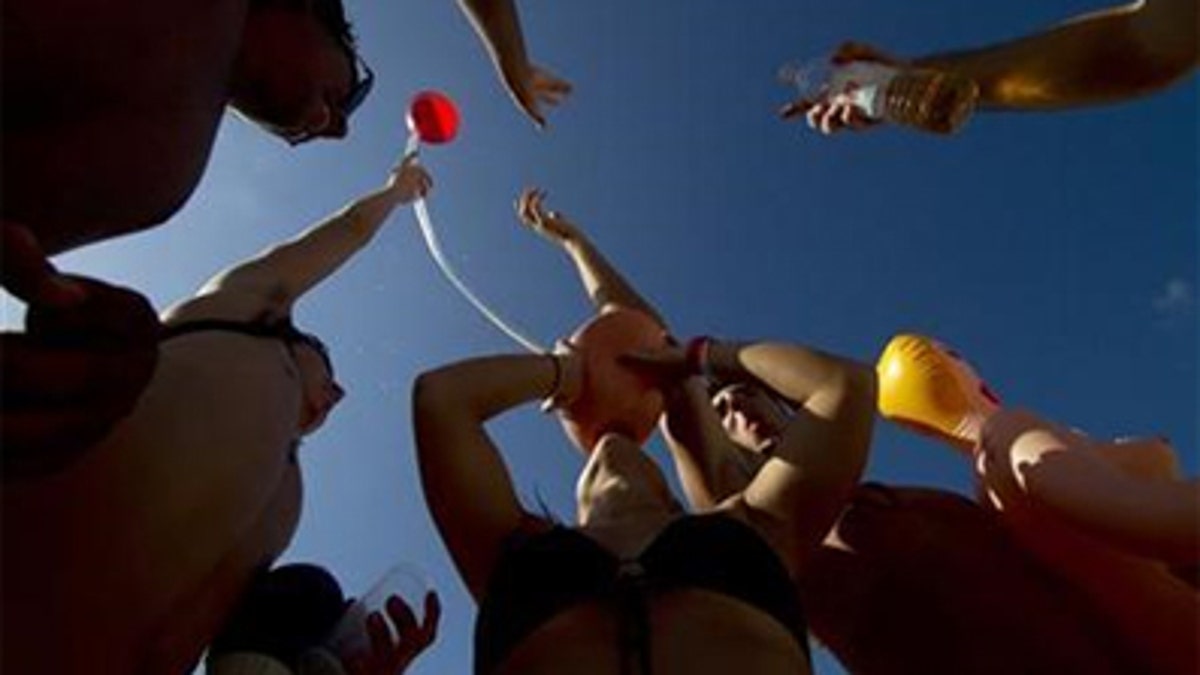
For many college binge drinkers, the perceived positive effects of alcohol as a social lubricant outweigh its negative impacts, from hangovers and blackouts to missed classes, a new study shows.
Drawing from an online survey of nearly 500 college students, researchers found that the harm caused by heavy drinking was not generally considered a strong deterrent, a finding that could offer a new direction for college programs targeting binge drinking, according to Kevin King, one of the authors of the report.
"This study suggests why some people can experience a lot of bad consequences of drinking but not change their behavior," said King, a professor of psychology at the University of Washington.
"People ... do not seem to associate their heavy drinking with negative consequences," he added.
The perceived positive effects of drinking, from improved conversational ability to enhanced sexual prowess, were thought likely to repeat themselves in a phenomenon the researchers dubbed "rose-colored beer goggles."
The study cites grim statistics on the consequences of college drinking: 1,800 deaths, 500,000 injuries and 600,000 assaults each year. While heavy drinking rates have remained stable for men, they have increased for women, according to the researchers.
People who took part in the study responded to an online survey asking how often they had experienced 35 negative consequences of drinking and positive consequences.
The list of negatives included blackouts, fights, lost or stolen belongings, hangovers and missed class. The positives benefits were better conversational and joke-telling abilities and more energy to stay up late partying.
Many of the students thought the positive consequences are worth risking the negative.
"There is some kind of bias that's happening when people experience these things," King said in an interview. "You could compare it to touching a hot stove. What we are seeing is that only when people get really burned by their drinking are they deterred."
According to Diane Logan, the lead author of the study, alcohol intervention programs at colleges tend to focus on how to avoid the negative consequences of drinking but factoring in how people view the positive effects might have a bigger impact on drinking habits.
She recommends training exercises to increase social skills in the absence of alcohol.
The study was published in the online edition of the journal Psychology of Addictive Behaviors.
